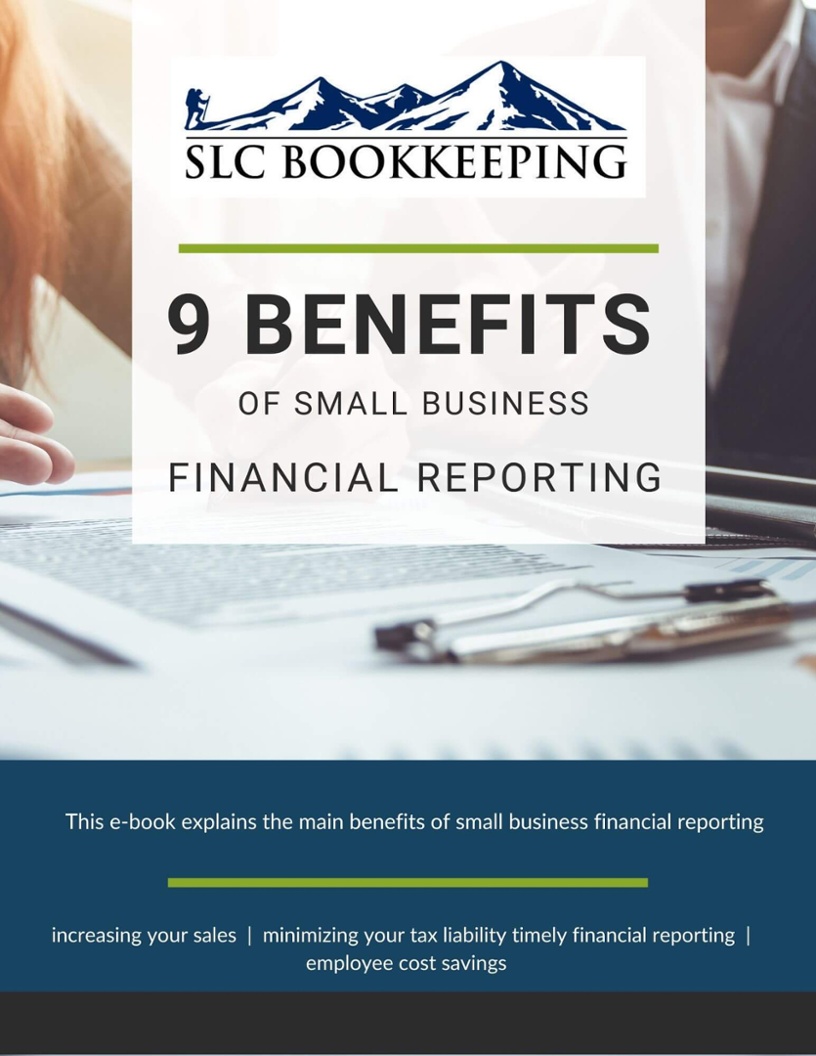Turn Your Bookkeeping Into A Kick-Ass Business Tool
 Most business owners do not use bookkeeping as a business tool to make decisions. Most bookkeeping systems are not set up properly to be used as a tool and therefore most business owners don't see value in their bookkeeping system. At SLC Bookkeeping we like to work with small businesses that want to use their bookkeeping to help run their business. Some business owners know that the financial reports of their business are the roadmap to success and others need to be shown why that is. Taking your bookkeeping beyond data entry and filing taxes into a well-oiled machine that is full of information is why we are in business. Here is how to turn your bookkeeping system into a ass kicking business tool.
Most business owners do not use bookkeeping as a business tool to make decisions. Most bookkeeping systems are not set up properly to be used as a tool and therefore most business owners don't see value in their bookkeeping system. At SLC Bookkeeping we like to work with small businesses that want to use their bookkeeping to help run their business. Some business owners know that the financial reports of their business are the roadmap to success and others need to be shown why that is. Taking your bookkeeping beyond data entry and filing taxes into a well-oiled machine that is full of information is why we are in business. Here is how to turn your bookkeeping system into a ass kicking business tool.
Fix Current System
Your bookkeeping will never be a tool until you fix your current bookkeeping system. There is a chance that your bookkeeping is current and accurate, but to be honest it is pretty rare. Most likely there are at least a few mistakes or areas that can be improved. The best thing you can do for your bookkeeping is to reconcile your QuickBooks accounts. This at least gives you a starting point that everything is entered, and then you just need to ensure that everything is in the correct bucket. Another thing you want to make sure of is that your bookkeeping file matches your most recent tax return. After the system is fixed and current we can begin on the next step of finding meaning in your bookkeeping.
Define Meaning
The next step in transforming your bookkeeping system into a tool is defining meaning. You can find meaning in your bookkeeping in all kinds of areas but you need to adjust a few things first.
Chart of accounts - The chart of accounts needs to be meaningful to you as a business owner. I see two major mistakes when it comes to the chart of accounts. First, many people tend to over complicate the chart of accounts, which leads to meaningless reporting. Keep your chart of accounts as simple as possible while still being meaningful to you. Second, I see many people worry more about tailoring the chart of accounts to their tax return rather than their business needs. Your CPA will have no problem filing your taxes as long as you keep your chart of accounts simple.
Business mindset - Next I tell people to stop worrying about bookkeeping and numbers and to talk about their business. What aspects of your business are most important to you? What are you currently not getting from your bookkeeping system that would help you? You need to think about what is important to you as a business owner and tailor your bookkeeping to those needs.
Reports - After you have a meaningful chart of accounts and a goal for what you want your bookkeeping to do, you need to find some reporting that helps fulfill those needs. I will talk about financial reporting in more depth later in this article.
Keep It Current
Now that you have taken the time to fix your bookkeeping system and build a kick ass one let's keep it that way. You need to keep your books current. Establish clear goals, expectations and deadlines with your bookkeeper. Bookkeeping is so easy to push to the back burner, especially if you are handling it yourself. However, once your bookkeeping system is churning out useful information I guarantee you will notice when it is not updated. As always make sure the books are reconciled on a consistent basis because that is the most important bookkeeping step you can take. Once you have your bookkeeping system firing on all cylinders it's time to really use it as a tool.
Financial Reporting
Financial reporting on your small business bookkeeping is what will turn your system into a tool. Most small businesses don't pay enough attention to their financial reports because their bookkeeping in not current and inaccurate. Once you have a bookkeeping system that is working correctly you can really take advantage of financial reporting. Express to your bookkeeper what information is really important to you. You should customize QuickBooks reports until you have a set of reports that are really meaningful to you. Make sure to memorize your reports so that you have easy access to them.
Another thing you should do is to create a budget in QuickBooks. This is really important for any business. Make sure that you create your budget prior to year-end so that you will have it as a tool for the upcoming year. In my mind November and early December is the ideal time to create a budget. By this time you should have a good understanding of how your year is going to end up and what your projections are for next year. Lastly, be sure to enter your budget into QuickBooks so that you can easily do budget vs actual comparisons throughout the year.
The last thing I want to mention is how to use QuickBooks as a cash flow tool. If you are entering transactions in QuickBooks prior to them clearing your bank you have an opportunity to really hone in on actual cash balances. If you print checks from QuickBooks and enter daily sales and deposits before they hit your bank you will know not only what your current cash balance is but where it is going. Cash flow is really important to all small businesses and having this good of a handle on it is powerful.
Bookkeeping System Adjustments
The last thing I want to talk about is the necessity of adjusting your bookkeeping system. Like most everything in your business your bookkeeping needs will change as your business grows. Be sure to audit your current bookkeeping system at least once a year to ensure that it is meeting your current needs. If you need other information from your bookkeeping system communicate that to your bookkeeper and hold them accountable for providing the information. You should constantly be pushing your bookkeeping system to provide you the most meaningful information possible.
Is your bookkeeping system a valuable business tool? Want to find out how to turn it into one?
Photo Credit © Dollar Photo Club / Chastity


Comments